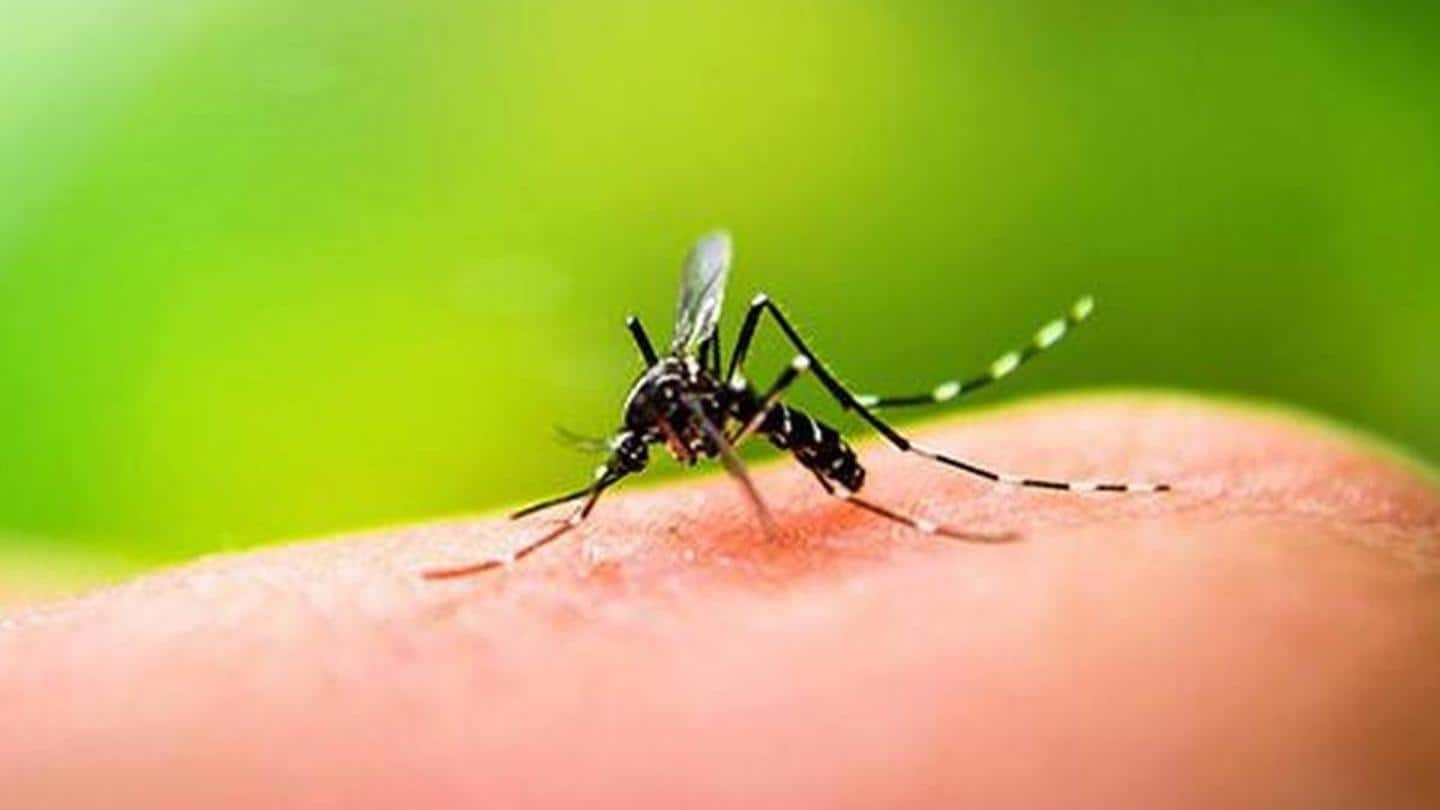
Scientists secure government nod for genetically modified mosquitoes in Florida
What's the story
In a turn of events straight out of a science fiction flick, a biotechnology company called Oxitec has secured approval from the US Environmental Protection Agency (EPA) to release swarms of genetically modified (GM) mosquitoes in the Florida Keys.
The idea behind this wild experiment is to cut the population of female mosquitoes that accelerate local transmission of diseases such as dengue and malaria.
Why GM?
Dengue cases in Florida were caused primarily by local transmission
For context, the US Centres for Disease Control and Prevention (CDC) says that Florida residents reported 41 travel-related dengue cases while 71 other cases of the disease were caused by local transmission.
Mosquitoes are also associated with the transmission of the Zika virus.
But why genetically modify mosquitoes? Well, Florida mosquitoes have grown increasingly resistant to insecticide and other common countermeasures.
Details
Plan is to eventually eliminate wild female mosquito population
Oxitec's "OX5034" GM mosquitoes are touted to be engineered such that females die in early larval stages. So, Oxitec would only release males.
Oxitec predicts that once GM mosquitoes mate with wild ones, each subsequent generation would have fewer female mosquitoes. This, in turn, would reduce the spread of diseases since females feed off human blood and cause infection.
Guinea pigs
Oxitec has already released billions of GM mosquitoes in Brazil
Although the plan was proposed in 2011, it met strong opposition from Florida residents who feel they're like "Guinea pigs" for Oxitec's experiments.
On the contrary, Oxitec says the release was delayed as the project's jurisdiction was transferred from the US Food and Drug Administration (FDA) to the EPA.
Oxitec has already released over a billion GM mosquitoes in Brazil and the Cayman Islands.
Details
Oxitec's critics disappointed by how EPA approval process was handled
Independent commissions have said that people who discredit Oxitec's evidence don't fully understand GM technology.
Meanwhile, Oxitec's critics who do understand GM technology including physicians, scientists, and environmental activists said that they aren't content with how the approval process was handled.
Despite organizing webinars, Oxitec reportedly hasn't yet explained how its GM mosquitoes will curb the spread of infectious diseases.
Failed experiments?
Yale researchers discovered that some mosquitoes survived till adulthood
In fact, some of Oxitec's experiments didn't go as planned. A 2019 study published in Nature found that GM mosquitoes that were supposed to die and not pass the gene to the wild population actually survived till adulthood.
The disease transmission properties of these "mixed" mosquitoes aren't known yet.
Oxitec refuted the study's claims saying that it included "numerous false, speculative, and unsubstantiated claims".
All for science
After EPA's approval, there isn't much Florida residents can do
Now that Oxitec has the EPA's approval, it doesn't seem like Florida residents can do much about the company's plans.
However, people who have been vocal in their opposition of Oxitec's ways reportedly remain determined to push for more transparent processes and accountability from the biotechnology company.
It all boils down to asking ourselves, "Is it really a good idea to play God?"